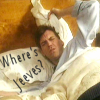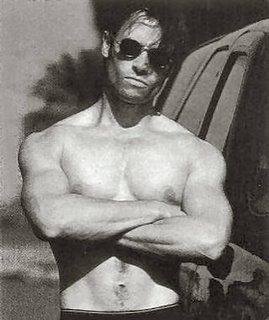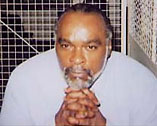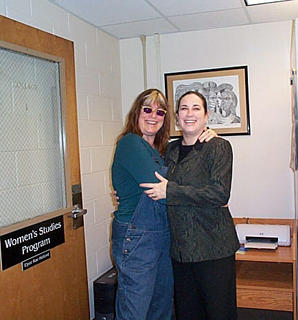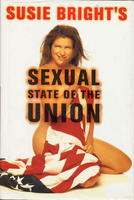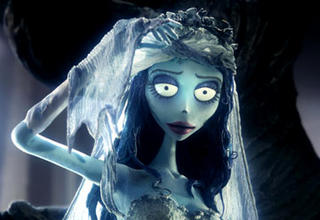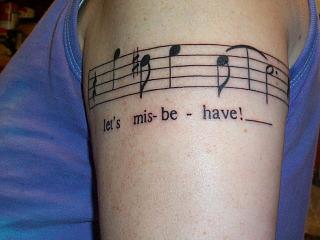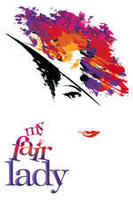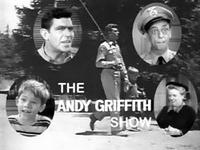I won't belabor the point, but just want to say that I've spent the last 2 weeks in bed with the most severe back pain I can imagine. Makes labor pains laughable by comparison, and my labor pains were a 17 out of 10. This pain was well into the 20s.
Not sure what caused the "injury." I had no accident to speak of. Just was feeling pretty good one morning and went to hang up the phone and felt a muscle pull. My chiropractor believes I pulled or tore a tendon, then this caused a disk in my low back to get very out of place, in turn pinching a nerve. Whatever the case, I spent 2 days not being able to use my back at all, resulting in Chad dragging me around, including some horrific trips to the bathroom where he had to hold me up over the toilet so I could pee, in great pain, standing up. Too much information, I know, but it lets you know just how out of commission I truly was.
This led to days and days and days of bedrest, icepacks, and visits to the chiropractor as soon as I could haul myself into the car without so much pain I was howling or crying. And the result of that? I watched more bad television than any human being ever should. My commentary on what I saw follows...
The first few days consisted of gorging myself on the Food Network. I picked up some fabulous recipes and tips for modifying recipes I already enjoy. My dad and I discussed the "hotness" factor of the women of the cooking shows, as I lacked the energy for feminist debate. I like the smiling, nasal girl-next-door Rachael Ray, but the huge-faced glossy Giada De Laurentiis of Everyday Italian has a definite panache. But no, my dad says, they're nothing compared to Sandra Lee -- that bottle blond, raccoon-eyed temptress who always adds a healthy dose of hard liquor cocktails to each "semi-homemade" meal of pot roast and pudding cakes! Still, I can stomach watching any of them more easily than Martha Stewart. Martha's just too pretentiously faux down-to-earth, and too dull, even though I think hundreds of greasy white male CEOs should have been in prison before her.
But soon, hours and hours of cooking shows became repetitive and unwatchable. I flipped channels a lot, finding no movies I could stand, no reruns worth rerunning with, and little else to tolerate. (Eventually, I switched to reading Harry Potter, but I'm getting ahead of myself.)
At some inexplicable point, I stopped on VH1's 100 Best Child Actors, or something like that. These countdown shows often leave me cold after watching 3 or 4 entries, but I kept watching this one. I didn't know half the stars, as they were in child roles during the 80s, when I was in college and not watching the likes of Blossom or Punky Brewster or Silver Spoons. But then a commercial came on for the show coming up after the countdown: My Fair Brady, an offshoot of The Surreal Life. Damn if I didn't get hooked after one episode, watching the uptight and self- important Christopher Knight (aka Peter Brady) try to live with the insanely trite and immature Adrianne Curry. I enjoyed the drunken parties, the spanking, and the grotesque efforts to communicate like adults. Well, perhaps "enjoy" is not the right verb. I got sucked in because I wanted to leap through the TV and give them relationship lessons! Mostly, I wanted to smack them both upside the head and tell them to "grow up!" But that, of course, does not really explain the power of "celebreality" shows. I only know I feel less guilty watching "celebrities" act like asses than average schmoes. I don't feel they're being as exploited.
important Christopher Knight (aka Peter Brady) try to live with the insanely trite and immature Adrianne Curry. I enjoyed the drunken parties, the spanking, and the grotesque efforts to communicate like adults. Well, perhaps "enjoy" is not the right verb. I got sucked in because I wanted to leap through the TV and give them relationship lessons! Mostly, I wanted to smack them both upside the head and tell them to "grow up!" But that, of course, does not really explain the power of "celebreality" shows. I only know I feel less guilty watching "celebrities" act like asses than average schmoes. I don't feel they're being as exploited.
But then there is the next level of celebreality car-crash ambulance-chasing show: Breaking Bonaduce. As Danny Bonaduce (ex-Danny Partridge) actively welcomes you into his televised nervous breakdown via alcohol, drugs, steroids, and ineffective communication skills, you just feel like this is the ultimate in where we've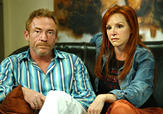 always been meant to arrive via reality tv. You're not watching anything he isn't showing you; he desperately wants you to watch; you learn more about ineffective coping and relationship skills than you could through a whole degree in clinical psychology. Again, for me, there's the "want to reach through the TV and throttle him" factor, and in this show I also want to throttle his wife (they married on their first date, the show boasts) and their smug git of a therapist who sides entirely with the wife and never helps them communicate at all.
always been meant to arrive via reality tv. You're not watching anything he isn't showing you; he desperately wants you to watch; you learn more about ineffective coping and relationship skills than you could through a whole degree in clinical psychology. Again, for me, there's the "want to reach through the TV and throttle him" factor, and in this show I also want to throttle his wife (they married on their first date, the show boasts) and their smug git of a therapist who sides entirely with the wife and never helps them communicate at all.
Along the way, I also caught the last 3 episodes of Season 5 of The Surreal Life, but Omarosa and Janice's bitch goddess escapades can't compete with Bonaduce's self-destructive aggression. And it was hard to watch the sweet tears of bimbo Caprice while Bronson Pinchot made his desperate midlife-crisis bids for her affections. Amazingly, Jose Canseco emerged as the most sane and mature of the group, and that's pretty frightening. But, again, not as frightening as The Bonaduce, unwrapping his broken hand and popping Vicodin while swigging vodka and cranberry juice.
I feel like I've done some "good work" here for my teaching, as I know my students must be watching at least some of this crap. Still, it's us babyboomers that care about how Peter Brady and Danny Partridge and Balki have ended up...and with no way to get out of bed and nothing to do on my aching back but channel surf, I fell right into the VH1 trap.

